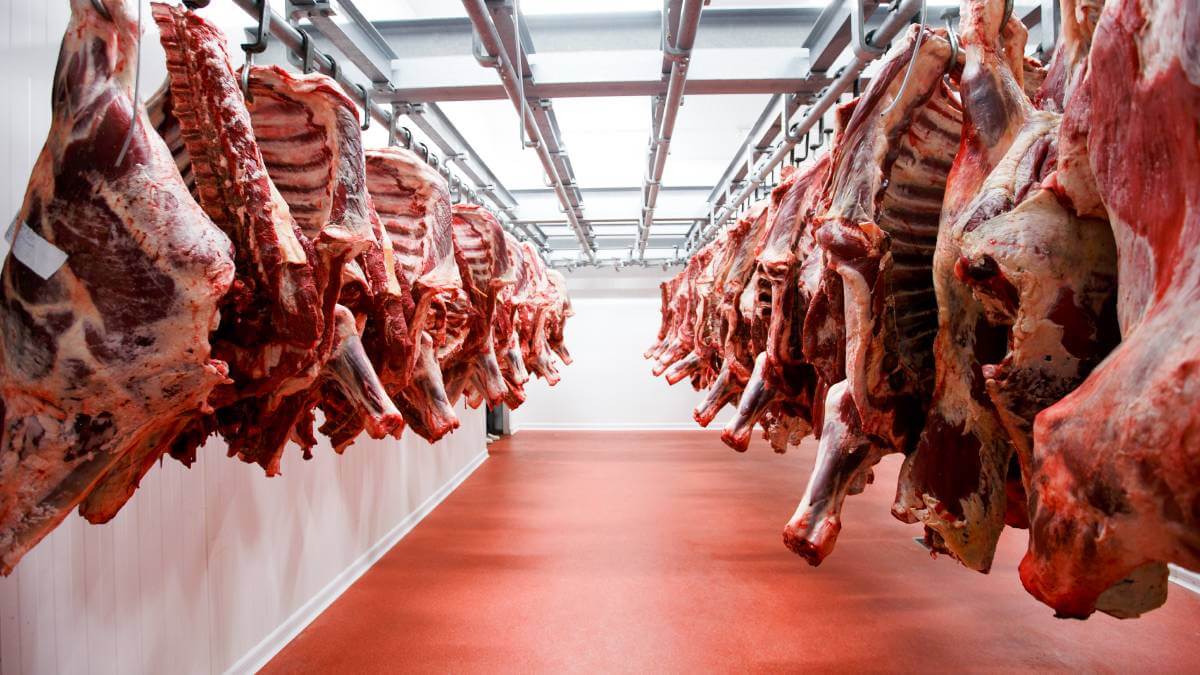
A quiet transformation is unfolding across Egypt’s farms, feedlots and hatcheries. Officials at the Ministry of Agriculture and Land Reclamation report that Egypt now produces 60 percent of its red meat domestically and has reached near-complete self-sufficiency in poultry. Those numbers are more than statistics. They are a signal that a decades-long push to strengthen food security, raise animal health standards and create profitable agricultural partnerships is finally paying off.
Why 60 percent of red meat and near-complete poultry self-sufficiency matter
For ordinary families the change is practical. More domestic production means steadier supply of beef and lamb, less exposure to global price shocks and fresher meat on the table. For the economy it means fewer imports, stronger rural incomes and new opportunities for agribusinesses and foreign investors. The phrase food security stops sounding abstract and begins to mean reliable markets, healthier livestock and predictable costs for consumers.
Mohamed el Qersh, spokesperson for the Ministry of Agriculture and Land Reclamation, underlined the point: the government’s food security program prioritizes veterinary services, livestock development and keeping a steady supply of safe, high quality animal products. Those priorities are not just words. They are implemented through inspections, licensing and tighter oversight of veterinary pharmaceuticals to safeguard animal health and boost domestic output.
The backbone of progress: animal health and regulation
A big part of Egypt’s success comes from getting the basics right. Regular inspections at veterinary pharmaceutical facilities are being carried out to ensure service standards, confirm licensing and monitor the safety of veterinary drugs. That kind of front line quality control protects animals and protects consumers. Healthy herds mean higher yields and fewer costly outbreaks. For farmers it also means greater confidence to invest in breeding, feed improvements and scale.
Investments in veterinary capacity and livestock development create ripple effects: better productivity, more stable supplies, and higher-value exports in the future. In short, the Ministry’s efforts are building the infrastructure a modern animal protein sector needs.
Poultry growth: fast, efficient and local
Poultry has been a bright spot. Reaching near-complete self-sufficiency in poultry is a practical triumph. Poultry production scales quickly, serves domestic demand efficiently and provides affordable protein for urban and rural families alike. When a country can supply most of its own poultry needs, it gains flexibility in food policy and resilience against global market swings.
Opening doors to investment and regional partnerships
Egypt’s progress is attracting interest from its neighbors. Recent talks with Kuwait elevated agriculture to the center of a strengthening bilateral agenda. Minister Alaa Farouk shared Egypt’s expanding capabilities in livestock production, veterinary vaccines and medicines, and aquaculture, highlighting fish farming and poultry as rapidly growing sectors. The message to Kuwaiti investors was clear: Egypt offers stable projects, technical know how and an improving regulatory environment that reduces risk.
Mohamed Gaber Abou El Wafa, the incoming Egyptian ambassador to Kuwait, signaled that agriculture will be a major focus in his mission. The goal of these dialogues is practical: translate conversations into joint ventures, trade flows and concrete investment steps that benefit both countries.
What this means for investors and partners
If you are an investor or an agribusiness looking for opportunity, Egypt’s current landscape matters. Here are the most promising angles:
- Livestock production upgrades and feed milling projects to support higher red meat output.
- Veterinary vaccine and medicine manufacturing to supply a fast-growing regional market.
- Aquaculture and fish farming projects driven by technology and efficient use of water and feed.
- Modern poultry operations that can leverage scale and improved supply chains for domestic and regional sales.
Egypt is also actively inviting delegations to visit, inspect facilities and evaluate projects on the ground. That hands-on approach builds trust and eases due diligence for anyone considering partnership.
Real benefits for farmers and consumers
This shift is not only about national numbers. Farmers are the engine of the change. With better veterinary support, clearer regulations and growing demand, many smaller producers can improve yields, access better breeds and negotiate fairer prices. Consumers benefit from safer, higher quality meat and poultry that spends less time in long import supply chains.
The near-term outlook
The Ministry’s strategy is practical and ongoing: keep strengthening veterinary oversight, broaden livestock development programs and expand technical support for food security initiatives. If those efforts continue, Egypt can increase the share of domestically produced red meat further while consolidating its gains in poultry and aquaculture.
Egypt’s stride toward producing 60 percent of its red meat and nearly meeting its own poultry needs is more than a national achievement. It is a call to action for farmers, entrepreneurs and regional partners. When policy, regulation and private initiative align, food systems become more resilient and communities prosper. For investors looking for stable, socially meaningful returns and for consumers seeking reliable supplies of safe, high quality animal products, Egypt is becoming a market worth watching.
Stay updated with the latest farming tips and agriculture industry news from Africa by subscribing to our newsletter. Don’t miss out on valuable insights and updates. Follow us on Twitter, LinkedIn, and Facebook to join our farming community and stay connected with us.


















